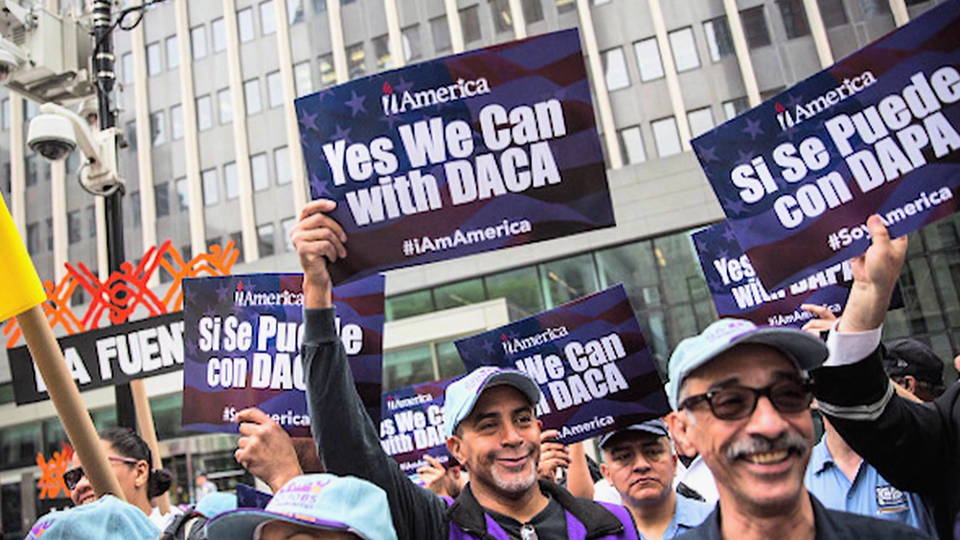Obama’s unilateral move to establish basic and necessary standards for young people living in the United States has been greeted by millions of children and adults affected by the new directive. The “Dream Act” as it is unofficially called, is a fitting name for the ubiquitous dreamers, who have been living in twilight, neither an American nor a foreigner. Its goal is to help motivated youths who were brought here as children and are American in all but the documentation.
As the Dream Act has languished in Congress for more than a decade, Obama’s administrations solution is a temporary patch though executive orders, pending Congress’ passage of the law. His directive permits these youth’s to live and work in the U.S., without fear of deportation, but does nothing to assist them in their education. In fact, most states do nothing to make an undocumented students life more comfortable and affordable
Understanding in-state tuition
In state tuition only applies to colleges that are run by the state. Private colleges don't have separate tuition rates.
For example if you want to attend the Fashion Institute of Technology in New York City. That college is run by the state of New York and paid for by the taxpayers of New York. If you're a taxpayer (citizen) of New York then you pay in-state tuition. If you are from another state then you pay out-of-state tuition. This is because the taxpayers of New York do not want to provide the same benefit to the kids from another state to go to a New York college.
The problem arises when a student is undocumented and resides in a state that will only provided in state tuition rates for legally documented student.
Some states, however, found a way to help out these students and, although the states cannot fix the immigration laws, they have passed their own versions of the Dream Act; to make college more affordable to undocumented students.
In 2001 Texas became the first state to pass its version of the “Dream Act,” an in-state resident tuition program that throws a lifeline to undocumented immigrant students.
To qualify, the states that have such laws normally require the students to have:
- attended a school in the state for a certain number of years;
- graduated from high school in the state; and
- signed an affidavit stating that they have either applied to legalize their status or will do so as soon as eligible.
These laws generally provide that U.S. citizens and lawful permanent residents who meet these requirements but no longer live in the state are able to qualify for the same tuition rate.
Texas has been followed by twelve other states, California, Connecticut, Illinois, Kansas, Maryland, Nebraska, New Mexico, New York, Oklahoma, Utah, and Washington. In addition, Rhode Island’s Board of Governors for Higher Education voted unanimously to grant access to in-state tuition at the state’s public colleges and universities to certain students, despite their immigration status.
Only three states — Texas, New Mexico and California — allow the student to receive government tuition aid.
New York may soon become the fourth. It has long been a shining light for immigrants and a leader in higher education. One bill pending in the New York Legislature would make undocumented students qualified for the state’s Tuition Assistance Program; another would provide aid through a fund with private donations.
A recent study by the Fiscal Policy Institute established that the Dream Act would add approximately $17 million, or barely 2 percent, to the cost of the Tuition Assistance Program in New York. The benefit outweighs the cost, as students that graduate college, increase a state’s image making the state more attractive to businesses.
These States Prohibit In-State Tuition for Undocumented Students
Four states--Arizona, Colorado, Georgia, and Indiana--do not permit undocumented students to receive in-state tuition rates. Proposition 300 passed in 2006, prohibits undocumented students from qualifying for in-state tuition rates and any type of state financial aid. In 2008, the state legislatures in Georgia and Colorado approved bills that bars undocumented students from receiving in-state tuition rates. South Carolina also, in legislation titled the "Illegal Immigration Reform Act," denies undocumented students from enrolling in its state colleges or universities. In 2011, Indiana passed HB 1402 requiring that students be lawfully present to receive in-state tuition benefits. Alabama joined South Carolina when a law was enacted in June 2011 preventing undocumented students from enrolling in public postsecondary institutions.
The Community College System Decisions
Some community college systems have entertained rules and regulations regarding undocumented students and tuition rates. The Alabama Community College System prohibits undocumented students from enrolling in its colleges. Since 2001, the North Carolina Community College System has modified its admissions policy for undocumented students five times. In the pastten years, the system has banned undocumented students from enrolling, allowed each campus to decide whether to admit undocumented students, allowed undocumented students, and then once more banned undocumented students from enrolling.
Following a 2009 decision, undocumented students who graduated from a North Carolina high school, and who are able to pay out-of-state tuition, are permitted to enroll in the North Carolina Community College System.
Board of Regents Decisions
Rhode Island's Board of Governors for Higher Education approved, in 2011, a policy that permits undocumented students to pay in-state tuition at Rhode Island's colleges if they attended and graduated high school in the state for at least three years. The students must sign an affidavit stating they are pursuing legal status.
In October 2010, Georgia's State Board of Regents passed new rules regulating the admission of undocumented students. The 35 institutions in the University System of Georgia must verify the "lawful presence" of all students seeking in-state tuition rates. In addition, any institution that has not admitted all academically qualified applicants in the two most recent years is not allowed to enroll undocumented students. This rule is expected to affect: University of Georgia, Georgia Tech, Georgia State University, Medical College of Georgia and Georgia College & State University.










